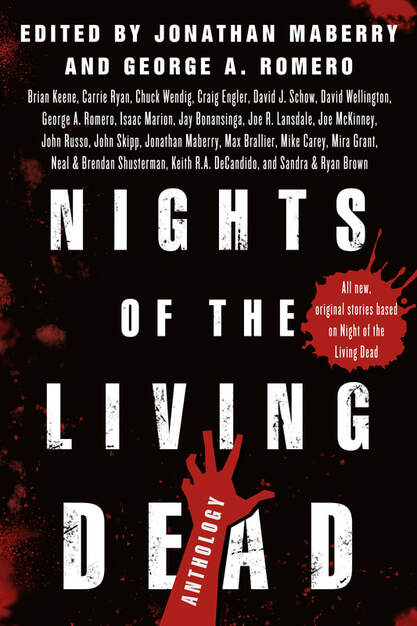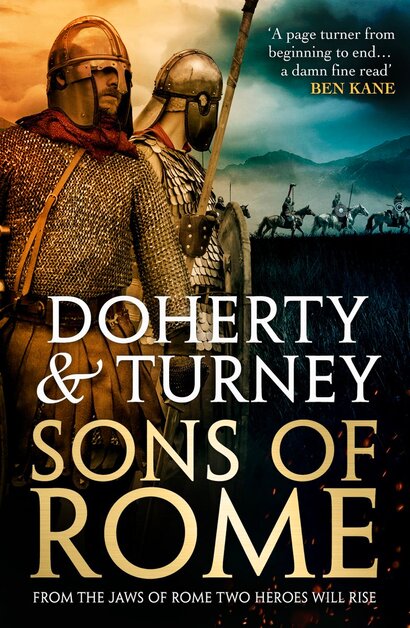Written by John Edward Betancourt  The endurance of the living dead as a whole, never ceases to amaze me. This disturbing creature and all of its various iterations have been around for well over eighty years and the modern zombie as we know it, the flesh-eating kind that is, have been around for just about fifty. But only in the last ten years or so, has this iconic monster truly enjoyed its renaissance. After all, the zombie is literally everywhere. You’ll find them in comics, on television and finding a fun zombie flick is as easy as popping the word into the search bar on Netflix. However, this kind of popularity has its draw backs, because in some ways the zombie has lost a bit of its power and ability to scare by becoming iconic enough to appear on a lunch box. Which is why I’m always grateful when I discover any kind of living dead media that manages to bring back the raw terror these creatures instill in all of us, and recently I came across a piece of work that meets that criteria by way of the wonderful anthology novel, Nights of the Living Dead. This magnificent compilation of short stories, takes us back into the world that George A. Romero envisioned back in 1968, by giving us an in depth look at how the rest of mankind dealt with the beginning of the end of the world, and I use the word magnificent when it comes to this book because it has managed to do the impossible… it scared the living hell out of me. There are some incredibly disturbing and powerful stories to be found in this compilation, since it features tales from some supremely creative heavyweights such as Jonathan Maberry, Jay Bonansinga and Brian Keene. But truly, the centerpiece of this anthology, is the sheer fact that it features a story from The Godfather of the Dead himself, George A. Romero. Yes, you read that right, Romero revisited the world he created one last time and let me tell you his story is an utter joy to read through and through. It’s terrifying, it’s powerful and it’s poignant simply due to the fact that this anthology was released shortly before his death and there’s something deeply profound about the fact he was able to write a story in the universe he created and share his dream and vision with so many incredible writers. And to top it off, this tale would serve as the humble beginnings of what would turn out to be the finale of this saga by way of the novel The Living Dead, which was co-written/finished by Daniel Kraus after George’s untimely passing. But all that aside, make no mistake about it. This is a frightening book. On several occasions, I had to put it down to clear the disturbing images out of my head and I only made the mistake of reading it before bedtime once since it had a profound effect on the tranquility of my sleep. Which means that this book is a must own for any zombie fan and quite frankly, any fan of horror for that matter as well. Because this is the zombie genre returning to its roots and it makes these unholy abominations the powerful force we remember them to be and I do hope this book inspires future anthologies that are equally as eager to unleash the living dead’s true fury upon mankind and make us hesitant to see what that noise was outside in the middle of the night.
0 Comments
 Please enjoy an excerpt from ‘Sons of Rome’ by Simon Turney and Gordon Doherty. Which is available for purchase, today. My earliest memory is of a storm, a relentless tempest that battered my birth town of Naissus. It gathered at dusk as I lay in my bed. Through the cracks in the shutters I watched the black clouds clawing across the dusk sky as if to tear down the day. Night arrived and the winds grew fiercer, howling like a pack of lost wolves, the rain lashing like a torturer’s whip. When the thunder came, I trembled like the timbers of our modest home. I shivered under my blanket, watching as the shutters strained against the storm’s wrath. Then with a furious gust, they were blown open. The icy gale searched through my room, tearing the blanket from me as the rain flayed the floorboards. I gawped at the open window, then glanced to the door leading downstairs and to safety. My parents often told me I was bold – too bold – and reckless. And so it was that night, for I found myself slipping from my bed, stepping towards the flapping shutters, shielding my eyes from the forked lightning that tore the dark asunder. Chill rain soaked my nightshirt as I grasped the sill then stretched to stand on my toes. I felt the breath catch in my throat when I saw what the storm had done to the town: the swollen river had burst its banks and now murky water tumbled through the streets in dark torrents. The pained lowing of trapped cattle sounded from nearby, and the broken corpses of others bobbed and tumbled through the deluge. I saw crying families huddled atop tumbled wagons and market stalls. Across the narrow streets I saw faces gazing out from broken shutters, eyes wide with panic. Every soul in this ancient market town cowered. Even the imperial garrison on the walls ran, hoisting their shields and taking shelter in the turrets. But I saw something that has stayed with me to the end: a lone, silhouetted figure standing tall and motionless on the battlements, as if bemused by the storm’s wrath. A legionary. He wore a sodden crimson cloak and rested his weight on his spear. While his comrades sought shelter, he remained. The squall raged around him, the rain battering on his helm and lashing over his face and shoulders. The lightning came once again and I saw his youthful features, gazing from his post and off into the northern countryside, unblinking. Through each clap of thunder, every streak of lightning, he did not flinch. I noticed his spear hand, and how white his knuckles were. He reminded me of the tall statue of Mars by the northern gates. The God of War stood like that too, spear grasped firmly. That was when I noticed that there was something else in the clenched fist of the legionary’s other hand. I could not see what it was that he held, but when I saw him lift it, whisper to and kiss it, I knew it was his source of strength as much as the spear. The reckless streak in me took hold again and I strained to get a better look, leaning further and further from the window until the rain soaked my face and my flaxen hair was plastered to my forehead. The legionary uncoiled his fingers at last. The thing sparkled in his palm. A Christian Chi-Rho, I realised – an amulet just like the one my mother wore. My strained gaze flicked from the spear to the amulet and back again. One a symbol of Mars and the other of the Christ-God. It made me wonder: on a battlefield – like those my legionary father oft fought upon back in those days – which would be more powerful? Just then, a cry sounded from the Temple of Jove, downhill from my home where the rushing waters were deepest. People waded from the temple in panic, splashing from the grand marble entrance, into the flood. A groan of timber and thick crack of masonry rang out, before a column crumbled to the endless rush of churning water. The screaming of one man was cut short as the capital of the column dashed him like ripe fruit, the crimson stain of his blood washing into the flood. I stared at the spot, horrified but unable to look away. At that moment, the wind whipped up as if to tear the town from the land and it pulled me from my precarious perch on the sill too. I toppled forward, a boyish cry forming in my lungs. But hands snatched me back from the window, bolting the shutters closed once more. Mother. ‘Constantine!’ she cried, going on to berate me for my foolishness. Soon though, her tone softened. As she held me to her rose-scented bosom, drying me with a rag, I traced a finger over the silver amulet dangling from her neck – just like the soldier’s. It was more common for the women of Naissus to be seen worshipping the Christian God, which made the legionary’s choice even more intriguing. The men, and particularly the garrison, tended to follow the old gods. Indeed, Father kept a small shrine to Mars in our home. ‘You told me Christians do not make war,’ I said. ‘But outside, I saw a man on the walls, a soldier...’ She stopped drying me and held me at arm’s length. Her eyes, azure like mine, affixed me. I thought I had spoken out of turn until she sighed and said: ‘Men are men, be they Christians or otherwise, and men make war.’ I frowned. Father had often told me that I would grow to one day be a soldier like him. I had listened in awe to his prayers to Mars. Likewise, I had been spellbound by Mother’s Christian tales. ‘What brings a man to war?’ I asked, then my frown deepened. ‘What brings a man to choose his god?’ She smiled weakly and brushed a droplet of water from my cheek with her thumb. ‘That is for each of us to find out, Constantine. Our choices in this life define us. That is the journey we each must make.’ She kissed me and laid me down. Soon, the storm faded and I drifted off to sleep. My dreams were riven with the image of the legionary on the walls and one echoing question: where might my journey take me? Excerpted from ‘Sons of Rome’, by Graham Doherty and Simon Turney. Head of Zeus, 2021. Reprinted with permission. |
Archives
September 2024
|
|
© 2012-2025, Nerds That Geek LLC.
All Rights Reserved. |
uWeb Hosting by FatCow

 RSS Feed
RSS Feed